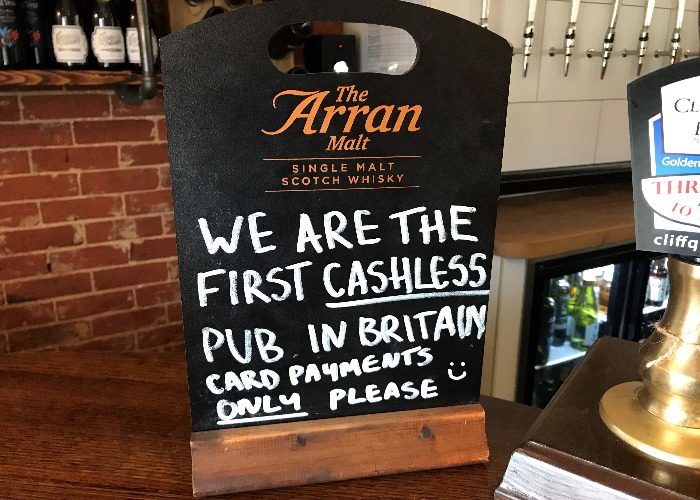Poll: should businesses be forced to accept cash?

As cash usage declines, a Government report warns of the dangers of more shops refusing notes and coins. Is it time to protect cash payments?
Have you recently been caught out by a cash-free shop?
At present, it’s a rare, if irritating occurrence, often associated with achingly-cool coffee shops in big cities.
However, according to a worrying new report, the problem of businesses refusing to accept cash is almost as dangerous as the plummeting numbers of ATMs.
The Access to Cash Review talked to people, businesses and regulators about how vulnerable people could be hit, with three-quarters of older people saying they'd find it difficult even to pay bills in a cashless society.
The Review produced five recommendations which could now be turned into law.
Why cash machines are disappearing from UK high streets
Cash isn't king
You might be surprised to learn that, at present, there’s no requirement for UK businesses to accept cash.
The oft-quoted ‘Legal Tender’ argument only gives you the right to settle debts in cash, not pay for products.
Although costs for businesses are similar for cash and card payments, the Access to Cash Review warns that cash costs are rising, which will be passed onto us through higher prices.
Some countries already legally require businesses to accept cash, including China and Denmark.
By contrast, in Sweden, which has no such requirements, half of retailers say they’ll stop accepting cash by 2025. Already, some Swedish hospitals have announced they would no longer accept cash, triggering public outcry.
According to the Review “we found that the real death knell for cash in Sweden was likely to be retailers and service providers refusing cash – not the loss of ATMs and bank branches.”
Get paid to ditch cash, by getting a cashback credit card
Not compulsory... yet
Just over half (51%) of people say that UK businesses, shops and councils should be obliged to accept cash, a survey by the Review found.
Disability rights organisations and the Money Advice Trust have also said it shouldn't be acceptable for shops to refuse cash payments.
Despite this, the Review did not recommend making it compulsory for all businesses to accept cash.
Only essential Government services, monopoly and utility services should be required to accept cash, it suggested, whilst the Government should intervene to make it cheaper for small businesses to deal with cash.
People should be able to pay for prescriptions with cash, the Review argued.
“We recommend that an overt Government policy position should be taken to the effect of ‘We need to ensure that everyone can use digital payments. However, until digital does work for everyone, cash needs to be supported in the UK economy’.”
Have your say
So, do you agree with the review – or should we require all businesses to accept cash?
Have your say in our poll and share your thoughts in the comments section below.
Comments
Be the first to comment
Do you want to comment on this article? You need to be signed in for this feature